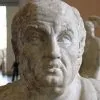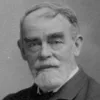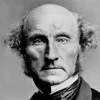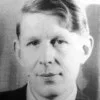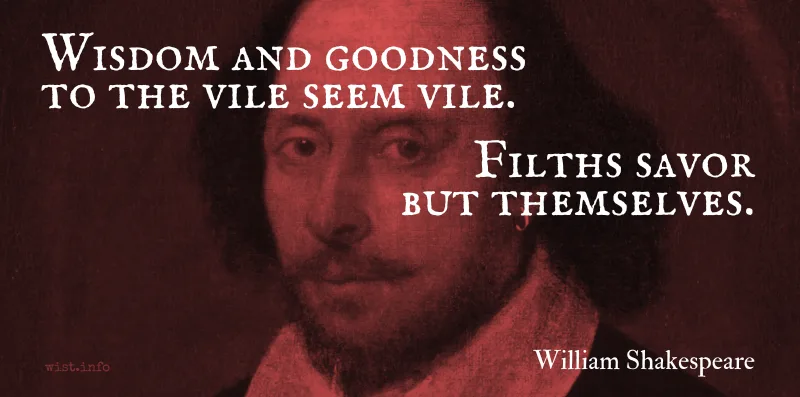The evil that is in the world always comes of ignorance, and good intentions may do as much harm as malevolence, if they lack understanding. On the whole men are more good than bad; that, however, isn’t the real point. But they are more or less ignorant, and it is this that we call vice or virtue; the most incorrigible vice being that of an ignorance which fancies it knows everything and therefore claims for itself the right to kill. There can be no true goodness, nor true love, without the utmost clear-sightedness.
Quotations about:
evil
Note not all quotations have been tagged, so Search may find additional quotes on this topic.
Evil isn’t the real threat to the world. Stupid is just as destructive as Evil, maybe more so, and it’s a hell of a lot more common. What we really need is a crusade against Stupid. That might actually make a difference.
Jim Butcher (b. 1971) American author
(Attributed)
Often cited to the short story "Vignette" (also known as "Publicity and Advertising"), but not found there.
Fairy tales are more than true: not because they tell us that dragons exist, but because they tell us that dragons can be beaten.
Neil Gaiman (b. 1960) British author, screenwriter, fabulist
Coraline (2002)
Paraphrase by Gaiman of G. K. Chesterton. Gaiman included it as an epigraph, attributed to Chesterton, but without looking up the exact wording.
The timidity of the child or the savage is entirely reasonable; they are alarmed at this world, because this world is a very alarming place. They dislike being alone because it is verily and indeed an awful idea to be alone. Barbarians fear the unknown for the same reason that Agnostics worship it — because it is a fact. Fairy tales, then, are not responsible for producing in children fear, or any of the shapes of fear; fairy tales do not give the child the idea of the evil or the ugly; that is in the child already, because it is in the world already. Fairy tales do not give the child his first idea of bogey. What fairy tales give the child is his first clear idea of the possible defeat of bogey. The baby has known the dragon intimately ever since he had an imagination. What the fairy tale provides for him is a St. George to kill the dragon.
Our errors and our controversies, in the sphere of morality, arise sometimes from looking on men as though they could be altogether bad, or altogether good.
[Nos erreurs et nos divisions dans la morale viennent quelquefois de ce que nous considérons les hommes comme s’ils pouvaient être tout à fait vicieux ou tout à fait bons.]
Luc de Clapiers, Marquis de Vauvenargues (1715-1747) French moralist, essayist, soldier
Reflections and Maxims [Réflexions et maximes], # 31 (1746) [tr. Stevens (1940)]
(Source)
Each of us has a vision of good and of evil. We have to encourage people to move toward what they think is Good. […] Everyone has his own idea of good and evil and must choose to follow the good and fight evil as he conceives them. That would be enough to make the world a better place.
Francis I (b. 1936) Argentinian Catholic Pope (2013- ) [b. Jorge Mario Bergoglio]
“How the Church Will Change,” interview with Eugenio Scalfari, La Repubblica (1 Oct 2013) [tr. K Wallace]
(Source)
For we wrestle not against flesh and blood, but against principalities, against powers, against the rulers of the darkness of this world, against spiritual wickedness in high places.
[ὅτι οὐκ ἔστιν ἡμῖν ἡ πάλη πρὸς αἷμα καὶ σάρκα ἀλλὰ πρὸς τὰς ἀρχάς πρὸς τὰς ἐξουσίας πρὸς τοὺς κοσμοκράτορας τοῦ σκότους τούτου πρὸς τὰ πνευματικὰ τῆς πονηρίας ἐν τοῖς ἐπουρανίοις.]
The Bible (The New Testament) (AD 1st - 2nd C) Christian sacred scripture
Ephesians 6:12 [KJV (1611)]
(Source)
(Source (Greek)). Alternate translations:For it is not against human enemies that we have to struggle, but against the Sovereignties and the Powers who originate the darkness in this world, the spiritual army of evil in the heavens.
[JB (1966)]For we are not fighting against human beings but against the wicked spiritual forces in the heavenly world, the rulers, authorities, and cosmic powers of this dark age.
[GNT (1976)]For it is not against human enemies that we have to struggle, but against the principalities and the ruling forces who are masters of the darkness in this world, the spirits of evil in the heavens.
[NJB (1985)]We aren’t fighting against human enemies but against rulers, authorities, forces of cosmic darkness, and spiritual powers of evil in the heavens.
[CEB (2011)]For our struggle is not against blood and flesh but against the rulers, against the authorities, against the cosmic powers of this present darkness, against the spiritual forces of evil in the heavenly places.
[NRSV (2011 ed.)]For our struggle is not against flesh and blood, but against the rulers, against the authorities, against the powers of this dark world and against the spiritual forces of evil in the heavenly realms.
[NIV (2011 ed.)]
They lied to you. The Devil is not the Prince of Matter; the Devil is the arrogance of the spirit, faith without smile, truth that is never seized by doubt. The Devil is grim because he knows where he is going, and, in moving, he always returns whence he came.
No one just starts giggling and wearing black and signs up to become a villainous monster. How the hell do you think it happens? It happens to people. Just people. They make questionable choices, for what might be very good reasons. They make choice after choice, and none of them is slaughtering roomfuls of saints, or murdering hundreds of baby seals, or rubber-room irrational. But it adds up. And then one day they look around and realized that they’re so far over the line that they can’t remember where it was.
“What,” asked Mr. Croup, “do you want?”
“What,” asked the marquis de Carabas, a little more rhetorically, “does anyone want?”
“Dead things,” suggested Mr. Vandemar. “Extra teeth.”
Now, as Crowley would be the first to protest, most demons weren’t deep down evil. In the great cosmic game they felt they occupied the same position as tax inspectors — doing an unpopular job, maybe, but essential to the overall operation of the whole thing. If it came to that, some angels weren’t paragons of virtue; Crowley had met one or two who, when it came to righteously smiting the ungodly, smote a good deal harder than was strictly necessary. On the whole, everyone had a job to do, and just did it. And on the other hand, you got people like Ligur and Hastur, who took such a dark delight in unpleasantness you might even have mistaken them for human.
Terry Pratchett (1948-2015) English author
Good Omens, 6. “Saturday” (1990) [with Neil Gaiman]
(Source)
He that scattereth Thorns must not go Barefoot.
Thomas Fuller (1654-1734) English physician, preacher, aphorist, writer
Gnomologia: Adages and Proverbs (compiler), # 2289 (1732)
(Source)
No one is an unjust villain in his own mind. Even — perhaps even especially — those who are the worst of us. Some of the cruelest tyrants in history were motivated by noble ideals, or made choices that they would call “hard but necessary steps” for the good of their nation. We’re all the hero of our own story.
That truth is that monsters are real, and ghosts are real, too. They live inside us, and sometimes, they win.
He who does not punish evil commends it to be done.
Leonardo da Vinci (1452-1519) Italian artist, engineer, scientist, polymath
Note-books (1508-1518)
(Source)
In some versions, this is translated as "commands it to be done."
No man ever became extremely wicked all at once.
[Nemo repente fuit turpissimus.]
The lack of objectivity, as far as foreign nations are concerned, is notorious. From one day to another, another nation is made out to be utterly depraved and fiendish, while one’s own nation stands for everything that is good and noble. Every action of the enemy is judged by one standard — every action of oneself by another. Even good deeds by the enemy are considered a sign of particular devilishness, meant to deceive us and the world, while our bad deeds are necessary and justified by our noble goals, which they serve.
Erich Fromm (1900-1980) American psychoanalyst and social philosopher
The Art of Loving, ch. 5 (1956)
(Source)
But a short time elapsed after the death of the great reformer of the Jewish religion before his principles were departed from by those who professed to be his special servants, & perverted into an engine for enslaving mankind, and aggrandizing their oppressors in church & state: that the purest system of morals ever before preached to man has been adulterated & sophisticated, by artificial constructions, into a mere contrivance to filch wealth & power to themselves, that rational men not being able to swallow their impious heresies, in order to force them down their throats, they raise the hue & cry of infidelity, while themselves are the greatest obstacles to the advancement of the real doctrines of Jesus, and do in fact constitute the real Anti-Christ.
Thomas Jefferson (1743-1826) American political philosopher, polymath, statesman, US President (1801-09)
Letter (1810-01-19) to William Baldwin (unsent)
(Source)
Darkness cannot drive out darkness; only light can do that. Hate cannot drive out hate; only love can do that. Hate multiplies hate, violence multiplies violence, and toughness multiplies toughness in a descending spiral of destruction […] The chain reaction of evil — hate begetting hate, wars producing more wars — must be broken, or we shall be plunged into the dark abyss of annihilation.
Rabid suspicion has nothing in it of skepticism. The suspicious mind believes more than it doubts. It believes in a formidable and ineradicable evil lurking in every person.
Eric Hoffer (1902-1983) American writer, philosopher, longshoreman
The Passionate State of Mind, Aphorism 184 (1955)
(Source)
The only index by which to judge a government or a way of life is by the quality of the people it acts upon. No matter how noble the objectives of a government, if it blurs decency and kindness, cheapens human life, and breeds ill will and suspicion — it is an evil government.
Eric Hoffer (1902-1983) American writer, philosopher, longshoreman
The Passionate State of Mind, Aphorism 147 (1955)
(Source)
By “nationalism” I mean first of all the habit of assuming that human beings can be classified like insects and that whole blocks of millions or tens of millions of people can be confidently labeled “good” or “bad.” But secondly — and this is much more important — I mean the habit of identifying oneself with a single nation or other unit, placing it beyond good and evil and recognizing no other duty than that of advancing its interests.
George Orwell (1903-1950) English writer [pseud. of Eric Arthur Blair]
“Notes on Nationalism” (May 1945)
(Source)
You have heard that it was said, An eye for an eye and a tooth for a tooth. But I say to you that you must not oppose those who want to hurt you. If people slap you on your right cheek, you must turn the left cheek to them as well. When they wish to haul you to court and take your shirt, let them have your coat too. When they force you to go one mile, go with them two. Give to those who ask, and don’t refuse those who wish to borrow from you.
[Ἠκούσατε ὅτι ἐρρέθη, “Ὀφθαλμὸν ἀντὶ ὀφθαλμοῦ” καὶ “ὀδόντα ἀντὶ ὀδόντος.” ἐγὼ δὲ λέγω ὑμῖν μὴ ἀντιστῆναι τῷ πονηρῷ· ἀλλ᾽ ὅστις σε ῥαπίζει εἰς τὴν δεξιὰν σιαγόνα [σου], στρέψον αὐτῷ καὶ τὴν ἄλλην· καὶ τῷ θέλοντί σοι κριθῆναι καὶ τὸν χιτῶνά σου λαβεῖν, ἄφες αὐτῷ καὶ τὸ ἱμάτιον· καὶ ὅστις σε ἀγγαρεύσει μίλιον ἕν, ὕπαγε μετ᾽ αὐτοῦ δύο. τῷ αἰτοῦντί σε δός, καὶ τὸν θέλοντα ἀπὸ σοῦ δανίσασθαι μὴ ἀποστραφῇς.]
The Bible (The New Testament) (AD 1st - 2nd C) Christian sacred scripture
Matthew 5:38-42 (Jesus) [CEB (2011)]
(Source)
The eye/tooth passage can be found in Exodus 21:23-25; Leviticus 24:19-20; Deuteronomy 19:21.
This passage is paralleled in Luke 6:29-30.
(Source (Greek)). Alternate translations:Ye have heard that it hath been said, An eye for an eye, and a tooth for a tooth: but I say unto you, That ye resist not evil: but whosoever shall smite thee on thy right cheek, turn to him the other also. And if any man will sue thee at the law, and take away thy coat, let him have thy cloke also. And whosoever shall compel thee to go a mile, go with him twain. Give to him that asketh thee, and from him that would borrow of thee turn not thou away.
[KJV (1611)]You have learnt how it was said: Eye for eye and tooth for tooth. But I say this to you: offer the wicked man no resistance. On the contrary, if anyone hits you on the right cheek, offer him the other as well; if a man takes you to law and would have your tunic, let him have your cloak as well. And if anyone orders you to go one mile, go two miles with him. Give to anyone who asks, and if anyone wants to borrow, do not turn away.
[JB (1966)]You have heard that it was said, "An eye for an eye, and a tooth for a tooth." But now I tell you: do not take revenge on someone who wrongs you. If anyone slaps you on the right cheek, let him slap your left cheek too. And if someone takes you to court to sue you for your shirt, let him have your coat as well. And if one of the occupation troops forces you to carry his pack one mile, carry it two miles. When someone asks you for something, give it to him; when someone wants to borrow something, lend it to him.
[GNT (1976)]You have heard how it was said: Eye for eye and tooth for tooth. But I say this to you: offer no resistance to the wicked. On the contrary, if anyone hits you on the right cheek, offer him the other as well; if someone wishes to go to law with you to get your tunic, let him have your cloak as well. And if anyone requires you to go one mile, go two miles with him. Give to anyone who asks you, and if anyone wants to borrow, do not turn away.
[NJB (1985)]You have heard that it was said, "An eye for an eye and a tooth for a tooth." But I say to you: Do not resist an evildoer. But if anyone strikes you on the right cheek, turn the other also, and if anyone wants to sue you and take your shirt, give your coat as well, and if anyone forces you to go one mile, go also the second mile. Give to the one who asks of you, and do not refuse anyone who wants to borrow from you.
[NRSV (2021 ed.)]
To accept passively an unjust system is to cooperate with that system; thereby the oppressed become as evil as the oppressor. Non-cooperation with evil is as much a moral obligation as is cooperation with good. The oppressed must never allow the conscience of the oppressor to slumber. Religion reminds every man that he is his brother’s keeper. To accept injustice or segregation passively is to say to the oppressor that his actions are morally right. It is a way of allowing his conscience to fall asleep. At this moment the oppressed fails to be his brother’s keeper. So acquiescence — while often the easier way — is not the moral way. It is the way of the coward.
Martin Luther King, Jr. (1929-1968) American clergyman, civil rights leader, social activist, preacher
Stride Toward Freedom, ch. 11 “Where Do We Go from Here?” (1958)
(Source)
Man is neither villain nor hero; he is rather both villain and hero.
Martin Luther King, Jr. (1929-1968) American clergyman, civil rights leader, social activist, preacher
Strength to Love, ch. 11 “What Is Man?” (1963)
(Source)
Describing a more realistic view of humanity neither in "the thesis of pessimistic materialism nor the antithesis of optimistic humanism."
It has been said that the love of money is the root of all evil. The want of money is so quite as truly.
Samuel Butler (1835-1902) English novelist, satirist, scholar
Erewhon, ch. 20 (1872)
See Bible, 1 Timothy 6:10
I would not take this thing, if it lay by the highway. Not were Minas Tirith falling in ruin and I alone could save her, so, using the weapon of the Dark Lord for her good and my glory. No, I do not wish for such triumphs, Frodo son of Drogo.
Whoever desires to found a state and give it laws must start with assuming that all men are bad and ever ready to display their vicious nature, whenever they may find occasion for it.
Niccolò Machiavelli (1469-1527) Italian politician, philosopher, political scientist
The Discourses on Livy, Book 1, Introduction (1517) [tr. Detmold (1882)]
Alt. trans.: "It is necessary for him who lays out a state and arranges laws for it to presuppose that all men are evil and that they are always going to act according to the wickedness of their spirits whenever they have free scope." [Discourse upon the First Ten Books of Livy, Book 1, ch. 3 (1513-18) [tr. Gilbert]]
Mass movements can rise and spread without belief in a God, but never without belief in a devil.
Eric Hoffer (1902-1983) American writer, philosopher, longshoreman
True Believer: Thoughts on the Nature of Mass Movements, Part 3, ch. 15, § 65 (1951)
(Source)
There are more Fools than Knaves in the World,
Else the Knaves would not have enough to live upon.Samuel Butler (1835-1902) English novelist, satirist, scholar
Prose Observations, “Sundry Thoughts”
(Source)
Imitate what is good wheresoever thou findest it, though among Turks, Jews, Pagans, or even Papists. And abominate Evil, though in thy nearest Relation.
Thomas Fuller (1654-1734) English physician, preacher, aphorist, writer
Introductio ad Prudentiam, Vol. 1, # 780 (1725)
(Source)
Perhaps it is impossible for a person who does no good not to do harm.
Harriet Beecher Stowe (1811-1896) American author
Uncle Tom’s Cabin, ch. 28 “Reunion” (1852)
(Source)
Treat bad men exactly as if they were insane. They are in-sane, out of health, morally. Reason, which is food to sound minds, is not tolerated, still less assimilated, unless administered with the greatest caution; perhaps, not at all. Avoid collision with them, so far as you honorably can; keep your temper, if you can, — for one angry man is as good as another; restrain them from violence, promptly, completely, and with the least possible injury, just as in the case of maniacs, — and when you have got rid of them, or got them tied hand and foot so that they can do no mischief, sit down and contemplate them charitably, remembering that nine tenths of their perversity comes from outside influences, drunken ancestors, abuse in childhood, bad company, from which you have happily been preserved, and for some of which you, as a member of society, may be fractionally responsible.
Oliver Wendell Holmes, Sr. (1809-1894) American poet, essayist, scholar
Elsie Venner, ch. 16 [The Professor] (1859)
(Source)
To ignore evil is to become an accomplice to it.
Martin Luther King, Jr. (1929-1968) American clergyman, civil rights leader, social activist, preacher
Where Do We Go from Here: Chaos or Community? (1967)
(Source)
It is a sin to believe evil of others, but it is seldom a mistake.
H. L. Mencken (1880-1956) American writer and journalist [Henry Lewis Mencken]
A Little Book in C Major, ch. 5, § 23 (1916)
(Source)
Variants:EVIL. That which one believes of others. It is a sin to believe evil of others, but it is seldom a mistake.
A Book of Burlesques, "The Jazz Webster" (1924)Evil is that which one believes of others. It is a sin to believe evil of others, but it is seldom a mistake.
Chrestomathy, ch. 30 "Sententiae" (1949)
The Christian determination to find the world ugly and bad has made the world ugly and bad.
[Der christliche Entschluss, die Welt hässlich und schlecht zu finden, hat die Welt hässlich und schlecht gemacht.]
Friedrich Nietzsche (1844-1900) German philosopher and poet
The Gay Science [Die fröhliche Wissenschaft], Book 3, § 130 (1882) [tr. Hill (2018)]
(Source)
Also known as La Gaya Scienza, The Joyful Wisdom, or The Joyous Science.
(Source (German)). Alternate translations:The Christian resolution to find the world ugly and bad, has made the world ugly and bad.
[tr. Common (1911)]The Christian resolve to find the world ugly and bad, has made the world ugly and bad.
[tr. Kaufmann (1974)]The Christian decision to find the world ugly and bad has made the world ugly and bad.
[tr. Nauckhoff (2001)]
But, by all thy nature’s weakness,
Hidden faults and follies known,
Be thou, in rebuking evil,
Conscious of thine own.John Greenleaf Whittier (1807–1892) American poet and abolitionist
“What the Voice Said,” st. 15, ll. 57-60 (1847)
(Source)
For it is in the person’s choice that wickedness and the commission of injustice are found.
[ἐν γὰρ τῇ προαιρέσει ἡ μοχθηρία καὶ τὸ ἀδικεῖν]
Aristotle (384-322 BC) Greek philosopher
Rhetoric [Ῥητορική; Ars Rhetorica], Book 1, ch. 13, sec. 10 (1.13.10) / 1374a.11 (350 BC) [tr. Bartlett (2019)]
(Source)
Often given as "The intention makes the crime." (Source (Greek)). Alternate translations:For the criminality and injustice of the act stands essentially in the deliberate principle on which it is done.
[tr. Buckley (1850)]For vice and wrong-doing depend on the moral purpose.
[tr. Jebb (1873)]It is deliberate purpose that constitutes wickedness and criminal guilt.
[tr. Roberts (1924)]For vice and wrongdoing consist in the moral purpose.
[tr. Freese (1926)]For the immorality and wrongness of an act depend on intentional choice.
[tr. Waterfield (2018)]
Everything matters more than we think it does, and, at the same time, nothing matters so much as we think it does. The merest spark may set all Europe in a blaze, but though all Europe be set in a blaze twenty times over, the world will wag itself right again.
Samuel Butler (1835-1902) English novelist, satirist, scholar
The Note-Books of Samuel Butler, “Sparks” (1912)
(Source)
Most of the members of the convent were old-fashioned Satanists, like their parents and grandparents before them. They’d been brought up to it and weren’t, when you got right down to it, particularly evil. Human beings mostly aren’t. They just get carried away by new ideas, like dressing up in jackboots and shooting people, or dressing up in white sheets and lynching people, or dressing up in tie-dye jeans and playing guitars at people. Offer people a new creed with a costume and their hearts and minds will follow.
Terry Pratchett (1948-2015) English author
Good Omens, 2. “Eleven Years Ago” (1990) [with Neil Gaiman]
(Source)
And I have again observed, my dear friend, in this trifling affair, that misunderstandings and neglect occasion more mischief in the world than even malice and wickedness. At all events, the two latter are of less frequent occurrence.
[Und ich habe, mein Lieber, wieder bei diesem kleinen Geschäft gefunden, dass Missverständnisse und Trägheit vielleicht mehr Irrungen in der Welt machen als List und Bosheit. Wenigstens sind die beiden letzteren gewiss seltener.]
Johann Wolfgang von Goethe (1749-1832) German poet, statesman, scientist
Die Leiden des jungen Werthers [The Sorrows of Young Werther], “Letter from May 4th” (1774)
Alt. trans.: "Misunderstandings and neglect create more confusion in this world than trickery and malice. At any rate, the last two are certainly much less frequent."
It may help to understand human affairs to be clear that most of the great triumphs and tragedies of history are caused, not by people being fundamentally good or fundamentally bad, but by people being fundamentally people.
Terry Pratchett (1948-2015) English author
Good Omens, 2. “Eleven Years Ago” (1990) [with Neil Gaiman]
(Source)
We too often forget that not only is there “a soul of goodness in things evil,” but very generally also, a soul of truth in things erroneous.
Herbert Spencer (1820-1903) English philosopher, naturalist
First Principles, Pt. I “The Unknowable,” ch. 1 “Religion and Science”” (1862)
(Source)
Quoting Shakespeare.
If a man really believes that God once upheld slavery; that he commanded soldiers to kill women and babes; that he believed in polygamy; that he persecuted for opinion’s sake; that he will punish forever, and that he hates an unbeliever, the effect in my judgment will be bad. It always has been bad. This belief built the dungeons of the Inquisition. This belief made the Puritan murder the Quaker.
Robert Green Ingersoll (1833-1899) American lawyer, agnostic, orator
Interview, The Sunday Union, New Haven, Conn. (10 Apr 1881)
(Source)
He who fights with monsters should look to it that he himself does not become a monster. And when you gaze long into an abyss, the abyss gazes also into you.
[Wer mit Ungeheuern kämpft, mag zusehn, dass er nicht dabei zum Ungeheuer wird. Und wenn du lange in einen Abgrund blickst, blickt der Abgrund auch in dich hinein.]
Friedrich Nietzsche (1844-1900) German philosopher and poet
Jenseits von Gut und Böse [Beyond Good and Evil], Aphorism 146 (1886) [tr. Hollingdale (1973, 1990)]
(Source)
Alternate translations:He who fights with monsters should be careful lest he thereby becomes a monster. And if thou gaze long into an abyss, the abyss will also gaze into thee.
[tr. Zimmern (1906)]Whoever fights monsters should see to it that in the process he does not become a monster. And when you look long into an abyss, the abyss also looks into you.
[tr. Kaufmann (1966)]
Therefore the good man, although he is a slave, is free; but the bad man, even if he reigns, is a slave, and that not of one man, but, what is far more grievous, of as many masters as he has vices.
[Proinde bonus etiamsi seruiat, liber est; malus autem etiamsi regnet, seruus est, nec unius hominis, sed, quod est grauius, tot dominorum, quot uitiorum.]
Augustine of Hippo (354-430) Christian church father, philosopher, saint [b. Aurelius Augustinus]
City of God [De Civitate Dei], Book 4, ch. 3 (4.3) (AD 412-416) [ed. Dods (1871)]
(Source)
See 2 Peter 2:19 "For people are slaves to whatever masters them." The idea of being a slave to vices was also a Stoic belief. Compare to La Bruyere.
(Source (Latin)). Alternate translations:And therefore he that is good is free though he be a slave, and he that is evil, a slave though he be a king. Nor is he slave to one man, but that which is worst of all, unto as many masters as he affects vices.
[tr. Healey (1610)]Thus, a good man, though a slave, is free; but a wicked man, though a king, is a slave. For he serves, not one man alone, but, what is worse, as many masters as he as vices.
[tr. Zema/Walsh (1950)]Hence even if a good man be a slave, he is free; whereas if a wicked man rule, he is a slave -- and a slave not to one man but, what is worse, to as many masters as he has vices.
[tr. Green (Loeb) (1963)]The good man, though a slave, is free; the wicked, though he reigns, is a slave, and not the slave of a single man, but -- what is far worse -- the slave of as many masters as he has vices.
[tr. Bettenson (1972)]Therefore the good man is free even if he is a slave, whereas the bad man is a slave even if he reigns: a slave, not to one man, but, what is worse, to as many masters as he has vices.
[tr. Dyson (1998)]Thus the good person is free, even if a slave, and the evil person is enslaved, even if a ruler -- enslaved not to one master but, what is far worse, to as many masters as he has vices.
[tr. Babcock (2012)]
You say you’re supposed to be nice to the Episcopalians and the Presbyterians and the Methodists and this, that, and the other thing. Nonsense, I don’t have to be nice to the spirit of the Antichrist.
Pat Robertson (1930-2023) American politician and televangelist
The 700 Club broadcast (1991-01-14)
(Source)
The earliest documentation of this quote I can find is in David Cantor, The Religious Right: The Assault on Tolerance & Pluralism in America, Sec. 1, ch. 1 (1994).
Over the centuries, mankind has tried many ways of combating the forces of evil … prayer, fasting, good works and so on. Up until Doom, no one seemed to have thought about the double-barrel shotgun. Eat leaden death, demon …
Thus, then, stands the case. It is good, that authors should be remunerated; and the least exceptionable way of remunerating them is by a monopoly. Yet monopoly is an evil. For the sake of the good we must submit to the evil; but the evil ought not to last a day longer than is necessary for the purpose of securing the good.
Thomas Babington Macaulay (1800-1859) English writer and politician
Speech on the Copyright Bill (5 Feb 1841)
(Source)
True, we have to hate evil; else we’re sentimental. But if we hate evil more than we love the good, we become damn good haters, and of those the world already has too many.
William Sloane Coffin, Jr. (1924-2006) American minister, social activist
Credo, “Faith, Hope, and Love” (2004)
(Source)
The ultimate weakness of violence is that it is a descending spiral, begetting the very thing it seeks to destroy. Instead of diminishing evil, it multiplies it. Through violence you may murder the liar, but you cannot murder the lie, nor establish the truth. Through violence you may murder the hater, but you do not murder hate. In fact, violence merely increases hate. So it goes. Returning violence for violence multiplies violence, adding deeper darkness to a night already devoid of stars. Darkness cannot drive out darkness; only light can do that. Hate cannot drive out hate: only love can do that.
Martin Luther King, Jr. (1929-1968) American clergyman, civil rights leader, social activist, preacher
Where Do We Go from Here: Chaos or Community? (1967)
(Source)
It doesn’t seem to me that this fantastically marvelous universe, this tremendous range of time and space and different kinds of animals, and all the different planets, and all these atoms with all their motions, and so on, all this complicated thing can merely be a stage so that God can watch human beings struggle for good and evil — which is the view that religion has. The stage is too big for the drama.
Richard Feynman (1918-1988) American physicist
Viewpoint interview by Bill Stout, KNXT (1 May 1959)
Reprinted in Perfectly Reasonable Deviations from the Beaten Track, ed. by Michelle Feynman, Appendix I (2006).
The belief in a supernatural source of evil is not necessary; men alone are quite capable of every wickedness.
Joseph Conrad (1857-1924) Polish-English novelist [b. Teodor Josef Konrad Korzeniowski]
Under Western Eyes, Part 2, ch. 4 (1911)
(Source)
For the wicked are full of regrets.
[μεταμελείας γὰρ οἱ φαῦλοι γέμουσιν.]
Aristotle (384-322 BC) Greek philosopher
Nicomachean Ethics [Ἠθικὰ Νικομάχεια], Book 9, ch. 4 (9.4.10) / 1166b.24-25 (c. 325 BC) [tr. Welldon (1892)]
(Source)
(Source (Greek)). Alternate translations:For the wicked are full of remorse.
[tr. Chase (1847)]Whence it is that the wicked are ever full of repentance.
[tr. Williams (1869)]For those who are not good are full of remorse.
[tr. Peters (1893)]For bad men are laden with repentance.
[tr. Ross (1908)]The bad are always changing their minds.
[tr. Rackham (1934)]For base people are full of regret.
[tr. Reeve (1948)]For bad men are full of regrets.
[tr. Apostle (1975)]For bad men are full of regrets.
[tr. Thomson/Tredennick (1976)]For base people are full of regret.
[tr. Irwin/Fine (1995)]For bad people are full of regrets.
[tr. Crisp (2000)]For base people teem with regret.
[tr. Bartlett/Collins (2011)]
Every political good carried to the extreme must be productive of evil.
Mary Wollstonecraft (1759-1797) English social philosopher, feminist, writer
The French Revolution, Book 5, ch. 4 (1794)
(Source)
Politics without principle.
Wealth without work.
Pleasure without conscience.
Knowledge without character.
Commerce and industry without morality.
Science without humanity
Worship without sacrifice.Frederick Lewis Donaldson (1860-1953) English Anglican priest and social activist
Sermon, Westminster Abbey, London (20 Mar 1925)
Summarized in a newspaper article (1 Apr 1925) where they are referred to as "the seven social evils," "the seven cardinal crimes of modern society," and "evils of the world." These were quoted by Mohandas Gandhi in an article in Young India, (22 Oct 1925), labeled as the "Seven Social Sins," and are often attributed to Gandhi.
More discussion: Seven Social Sins - Wikipedia.
The true rule, in determining to embrace, or reject any thing, is not whether it have any evil in it; but whether it have more of evil, than of good. There are few things wholly evil, or wholly good. Almost every thing, especially of governmental policy, is an inseparable compound of the two; so that our best judgment of the preponderance between them is continually demanded.
Abraham Lincoln (1809-1865) American lawyer, politician, US President (1861-65)
Remarks, House of Representatives (1848-06-20)
(Source)
Speaking on internal improvements (infrastructure) as part of governmental policy.
“Imagine that you are creating a fabric of human destiny with the object of making men happy in the end, giving them peace and rest at last, but that it was essential and inevitable to torture to death only one tiny creature — that baby beating its breast with its fist, for instance — and to found that edifice on its unavenged tears, would you consent to be the architect on those conditions? Tell me, and tell the truth.”
“No, I wouldn’t consent,” said Alyosha softly.
HENRY: God almighty,
There is some soul of goodness in things evil,
Would men observingly distill it out.
For our bad neighbor makes us early stirrers,
Which is both healthful and good husbandry.
Besides, they are our outward consciences
And preachers to us all, admonishing
That we should dress us fairly for our end.
Thus may we gather honey from the weed
And make a moral of the devil himself.
For he that makes any thing his chiefest good, wherein justice or virtue does not bear a part, and sets up profit, not honesty, for the measure of his happiness; as long as he acts in conformity with his own principles, and is not overruled by the mere dictates of reason and humanity, can never do the offices of friendship, justice, or liberality: nor can he ever be a man of courage, who thinks that pain is the greatest evil; or he of temperance, who imagines pleasure to be the sovereign good.
[Nam qui summum bonum sic instituit, ut nihil habeat cum virtute coniunctum, idque suis commodis, non honestate metitur, hic, si sibi ipse consentiat et non interdum naturae bonitate vincatur neque amicitiam colere possit nec iustitiam nec liberalitatem; fortis vero dolorem summum malum iudicans aut temperans voluptatem summum bonum statuens esse certe nullo modo potest.]
Marcus Tullius Cicero (106-43 BC) Roman orator, statesman, philosopher
De Officiis [On Duties; On Moral Duty; The Offices], Book 1, ch. 2 (1.2) / sec. 5 (44 BC) [tr. Cockman (1699)]
(Source)
Attacking the Epicurean "highest good" of avoiding pain and seeking personal detachment; Cicero supported the Stoic virtues of courage and moderation.
(Source (Latin)). Alternate translations:He who teaches that to be the chief good which hath no connection with virtue, which is measured by personal advantage, and not by honor; if he be consistent with himself, and not sometimes overcome by the benignity of nature, can neither cultivate friendship nor practice justice nor liberality. That man cannot be brave who believes pain the greatest evil; nor temperate, who believes pleasure the supreme good.
[tr. McCartney (1798)]For if a man should lay down as the chief good, that which has no connexion with virtue, and measure it by his own interests, and not according to its moral merit; if such a man shall act consistently with his own principles, and is not sometimes influenced by the good ness of his heart, he can cultivate neither friendship, justice, nor generosity. In truth, it is impossible for the man to be brave who shall pronounce pain to be the greatest evil, or temperate who shall propose pleasure as the highest good.
[tr. Edmonds (1865)]For he who so interprets the supreme good as to disjoin it from virtue, and measures it by his own convenience, and not by the standard of right, -- he, I say, if he be consistent with himself, and be not sometimes overcome by natural goodness, can cultivate neither friendship, nor justice, nor generosity; nor can he possibly be brave while he esteems pain as the greatest of evils, or temperate while he regards pleasure as the supreme good.
[tr. Peabody (1883)]He who severs the highest good from virtue and measures it by interest and not by honour, if he were true to his principles and did not at times yield to his better nature, could not cultivate friendship, justice or liberality; and no one can be brave who declares pain the greatest evil, or temperate who maintains pleasure to be the highest good.
[tr. Gardiner (1899)]For he who posits the supreme good as having no connection with virtue and measures it not by a moral standard but by his own interests -- if he should be consistent and not rather at times over-ruled by his better nature, he could value neither friendship nor justice nor generosity; and brave he surely cannot possibly be that counts pain the supreme evil, nor temperate he that holds pleasure to be the supreme good.
[tr. Miller (1913)]Take, for example, the man who has established the kind of highest good that has nothing to do with virtue, that is, measured by the individual's convenience, not by his morality. If that man is consistent and is not in the meantime overcome by natural goodness, he cannot cultivate friendship, or justice, or openness of character. In fact, a man of courage who considers pain the greatest evil, or a temperate man who declares indulgence to be the greatest good, is surely an impossible contradiction.
[tr. Edinger (1974)]No man can be brave who thinks pain the greatest evil; nor temperate, who considers pleasure the highest good.
[Source]
Never open the door to a lesser evil, for other and greater ones invariably slink in after it.
[Nunca se le ha de abrir la puerta al menor mal, que siempre vendrán tras él otros muchos, y mayores, en celada.]
Baltasar Gracián y Morales (1601-1658) Spanish Jesuit priest, writer, philosopher
The Art of Worldly Wisdom [Oráculo Manual y Arte de Prudencia], § 31 (1647) [tr. Jacobs (1892)]
(Source)
(Source (Spanish)). Alternate translations:We must not open the door to the least evil, for others, and those greater too, which lie in ambush come always after.
[Flesher ed. (1685)]Never open the door to a small misfortune, for many more always creep in behind it, and greater ones, under its protection.
[tr. Fischer (1937)]Never open the door to the least of evils, for many other, greater ones lurk outside.
[tr. Maurer (1992)]
Evil is unspectacular and always human
And shares our bed and eats at our own table.
Every evil in the bud is easily crushed: as it grows older, it becomes stronger.
[Omne malum nascens facile opprimitur; inveteratum fit pleurumque robustius.]
Marcus Tullius Cicero (106-43 BC) Roman orator, statesman, philosopher
Philippicae [Philippics], No. 5, ch. 11 / sec. 28 (5.28) (1 Jan AD 43)
(Source)
(Source (Latin)). Alternate translations:Every evil is easily crushed at its birth; when it has become of long standing, it usually gets stronger.
[tr. Yonge (1903)]Every evil is easily crushed at its birth; become inveterate it as a rule gathers strength.
[tr. Ker (1926)]
If you pursue good with labor, the labor passes away but the good remains. If you pursue evil with pleasure, the pleasure passes away and the evil remains.
Marcus Tullius Cicero (106-43 BC) Roman orator, statesman, philosopher
(Attributed)
Widely attributed to Cicero, but no actual citations found. Sometimes the clauses are reversed:If you pursue evil with pleasure, the pleasure passes away and the evil remains. If you pursue good with labor, the labor passes away but the good remains.
HAMLET: O villain, villain, smiling, damnèd villain!
My tables — meet it is I set it down
That one may smile and smile and be a villain.William Shakespeare (1564-1616) English dramatist and poet
Hamlet, Act 1, sc. 5, l. 113ff (1.5.113-115) (c. 1600)
(Source)
The sad truth of the matter is that most evil is done by people who never made up their minds to be or do either evil or good.
Hannah Arendt (1906-1975) German-American philosopher, political theorist
The Life of the Mind, Vol. 1 “Thinking,” Part 3, ch. 18 (1977)
(Source)
Sometimes rendered (possibly from the original lecture): "The sad truth is that most evil is done by people who never make up their minds to be good or evil."
The fundamental Article of my political Creed is, that Despotism, or unlimited Sovereignty, or absolute Power is the Same in a Majority of a popular Assembly, an Aristocratical Counsel, an Oligarchical Junto and a Single Emperor. Equally arbitrary cruel bloody and in every respect, diabolical.
John Adams (1735-1826) American lawyer, Founding Father, statesman, US President (1797-1801)
Letter (1815-11-13) to Thomas Jefferson
(Source)
THIRD CITIZEN: Ingratitude is monstrous.
William Shakespeare (1564-1616) English dramatist and poet
Coriolanus, Act 2, sc. 3, l. 10 (2.3.10) (c. 1608)
(Source)
For God judged it better to bring good out of evil than not to permit any evil to exist.
[Melius enim judicavit de malis bene facere quam mala nulla esse permittere.]Augustine of Hippo (354-430) Christian church father, philosopher, saint [b. Aurelius Augustinus]
Enchiridion on Faith, Hope and Love, ch. 8 / § 27 (AD 420) [tr. Outler (1955)]
(Source)
(Source (Latin)). Alternate translations:For He judged it better to bring good out of evil, than not to permit any evil to exist.
[tr. Shaw (1887)]God judged it better to bring good out of evil than to suffer no evil to exist.
[tr. Clifford (1903)]
Men never do evil so completely and cheerfully as when they do it from religious convictions.
[Jamais on ne fait le mal si pleinement et si gaiement, que quand on le fait par un faux principe de conscience.]
Blaise Pascal (1623-1662) French scientist and philosopher
Pensées, ch. 14, Appendix: Polemical Fragments #895 (1669) [tr. Trotter (1910)]
(Source)
Also labeled as Part 2, Article 17, # 53. Sometimes also shown in slightly shorter French as "Jamais on ne fait le mal si pleinement et si gaiement que quand on le fait par conscience."(Source (French)). Alternate translations:
- "We never do evil so fully and cheerfully as when we do it out of conscience." [#813 (#895), tr. Krailsheimer]
- "We never do evil so completely and cheerfully as when we do it out of conscience." [Miscellaneous Thoughts 7: Sellier #658/Lafuma #813, tr. Ariew]
- "Men never do evil so completely and cheerfully as when they do it conscientiously."
Never attribute to malice that which is adequately explained by stupidity.
(Other Authors and Sources)
Robert J. Hanlon, “Hanlon’s Razor,” Murphy’s Law, Book Two (ed. A. Bloch) (1980)
Life often presents us with a choice of evils, rather than of goods.
Charles Caleb "C. C." Colton (1780-1832) English cleric, writer, aphorist
Lacon: Or, Many Things in Few Words, Vol. 2, § 102 (1822)
(Source)
All sins are attempts to fill voids.
Simone Weil (1909-1943) French philosopher
Gravity and Grace [La Pesanteur et la Grâce], “To Desire Without An Object” (1947) [ed. Thibon] [tr. Crawford/von der Ruhr (1952)]
(Source)
THE DOCTOR: Would you like a jelly baby?
LEELA: It’s true then! They say the Evil One eats babies.
THE DOCTOR: You mustn’t believe all they say.Chris Boucher (1943-2022) British TV screenwriter, script editor, novelist
Doctor Who, 14×04 “The Face of Evil,” Part 1 (1977-01-01)
(Source)
Good and evil both increase at compound interest. That is why the little decisions you and I make every day are of such infinite importance. The smallest good act today is the capture of a strategic point from which, a few months later, you may be able to go on to victories you never dreamed of. An apparently trivial indulgence in lust or anger today is the loss of a ridge or railway line or bridgehead from which the enemy may launch an attack otherwise impossible.
C. S. Lewis (1898-1963) English writer, literary scholar, lay theologian [Clive Staples Lewis]
Mere Christianity, Book 3 “Christian Behavior,” ch. 7 “Forgiveness” (1952)
(Source)
ALBANY: Wisdom and goodness to the vile seem vile.
Filths savor but themselves.William Shakespeare (1564-1616) English dramatist and poet
King Lear, Act 4, sc. 2, l. 47ff (4.2.47-48) (1606)
(Source)
LORENZO: The man that hath no music in himself,
Nor is not moved with concord of sweet sounds,
Is fit for treasons, stratagems, and spoils;
The motions of his spirit are dull as night,
And his affections dark as Erebus.
Let no such man be trusted. Mark the music.William Shakespeare (1564-1616) English dramatist and poet
Merchant of Venice, Act 5, sc. 1, l. 92ff (5.1.92-97) (1597)
(Source)
Neutral men are the devil’s allies.
It is some compensation for great evils that they enforce great lessons.
Christian Nestell Bovee (1820-1904) American epigrammatist, writer, publisher
Intuitions and Summaries of Thought, Vol. 1, “Compensation” (1862)
(Source)












